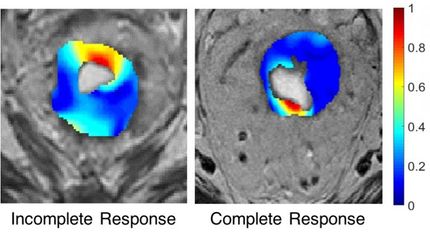Aeterna Zentaris Announces Initiation of Phase 3 Registration Trial with Perifosine in Refractory Advanced Colorectal Cancer
Æterna Zentaris Inc. announced the initiation of a Phase 3 registration clinical trial with perifosine (KRX-0401), the Company's potentially first-in-class, oral anti-cancer agent that inhibits Akt activation in the phosphoinositide 3-kinase (PI3K) pathway, for the treatment of refractory advanced colorectal cancer. The trial is sponsored and conducted by Keryx Biopharmaceuticals, Æterna Zentaris' partner and licensee for perifosine in the United States, Canada and Mexico. Æterna Zentaris has also out-licensed perifosine to Handok in South Korea, while retaining rights for the rest of the world.
The Phase 3 trial, entitled "X-PECT (Xeloda(R) + Perifosine Evaluation in Colorectal cancer Treatment) trial", is being conducted pursuant to a Special Protocol Assessment ("SPA") with the Food and Drug Administration. Perifosine has also been granted Fast Track designation for the treatment of refractory advanced colorectal cancer. Approximately 40 to 50 U.S. sites will participate in the study. Keryx expects enrollment to take approximately 12 - 14 months, with study completion expected in the second half of 2011.
Dr. Johanna Bendell, Director of GI Oncology Research for the Sarah Cannon Research Institute, Nashville, Tennessee, will lead the Phase 3 investigational team that includes Dr. Cathy Eng, Associate Medical Director for the Colorectal Center at MD Anderson Cancer Center in Houston, Texas.
Juergen Engel, Ph.D., President and Chief Executive Officer of Æterna Zentaris, commented, "We are very pleased with the initiation and sponsorship of this key registration Phase 3 trial in refractory advanced colorectal cancer in North America which our partner Keryx expects to complete in the second half of 2011, with product launch, in the USA, in 2012. These data will be very supportive of our efforts to register perifosine in the rest of the world, where in some countries, we expect they will be sufficient to do so without any additional studies."
Other news from the department research and development

Get the life science industry in your inbox
By submitting this form you agree that LUMITOS AG will send you the newsletter(s) selected above by email. Your data will not be passed on to third parties. Your data will be stored and processed in accordance with our data protection regulations. LUMITOS may contact you by email for the purpose of advertising or market and opinion surveys. You can revoke your consent at any time without giving reasons to LUMITOS AG, Ernst-Augustin-Str. 2, 12489 Berlin, Germany or by e-mail at revoke@lumitos.com with effect for the future. In addition, each email contains a link to unsubscribe from the corresponding newsletter.






















































